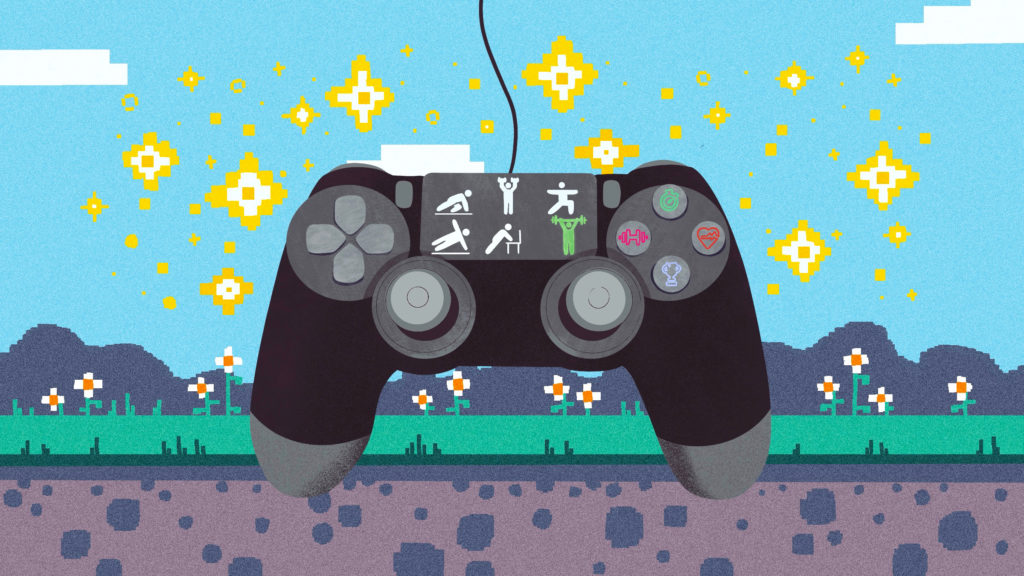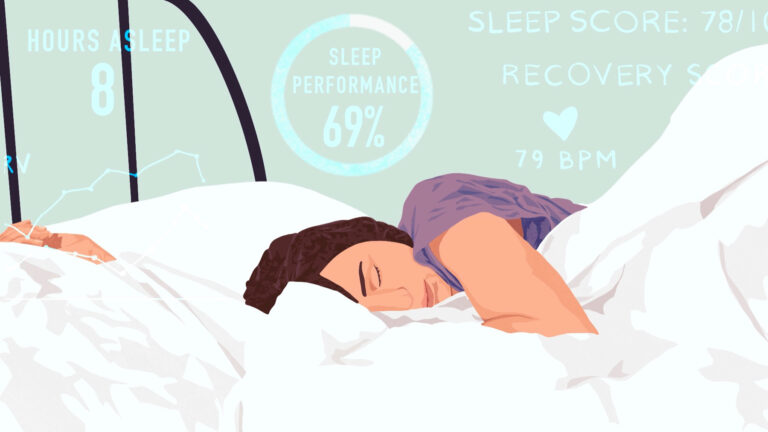A few weeks ago, on LinkedIn, I wrote: “The future of fitness looks like a game.”
Since that post generated a lot of interest, today, we’re exploring the intersection of fitness and gaming in more detail.
Game On
From Foursquare to Facebook and Duolingo to Robinhood, everyday activities like going to the coffee shop or trading stocks have been gamified.
Technically speaking, gamification applies game-like mechanics to non-game scenarios. In practice, tactics like points, badges, and competition are employed to engage and retain users.
The fitness world is no stranger to this trend. Fitbit users strive for 10K steps. Apple Watch nudges users to closing activity rings. Giving “kudos” on Strava keeps people coming back. And Peloton’s leaderboard is so valuable they sued Flywheel to protect it.
Likewise, other aspects of wellness have followed suit. Calm is essentially a mindfulness game. WHOOP scores sleep and recovery. And intermittent fasting app Zero expertly leverages streaks.
Interestingly, gamification has become table stakes and a target of criticism.
In a 2010 TED Talk, game designer Jane McGonigal credited gaming with making the world a better place. Conversely, fellow game designer Ian Bogost said “gamification is bullshit.”
A different perspective still, Yu-kai Chou, an expert in the field, prefers the term “human-focused design” to gamification.
More recently, distinguishing between gamification and game design has been a point of emphasis.
Rahul Vohra, CEO of email client Superhuman, flat out said gamification doesn’t work.
“Game design is not gamification. It is not simply taking your product and adding points, levels, trophies, and badges… To create games, we have to draw upon the art and science of psychology, mathematics, interaction design, and storytelling.”
Vohra goes on to explain that Superhuman’s game is designed around goals, emotions, controls, toys, and flow.
While there are many different frameworks for game design, the point remains: Engineering game-like experiences is more powerful than gamified gimmicks.
Back to the Future
The pandemic was a windfall for exercise apps and connected equipment makers, creating a workout-from-home gold rush.
Smart bikes and interactive classes were all the rage. But they certainly aren’t new.
In the early ’90s, SEGA released the HeartBeat Personal Trainer, a bundle that included a game console, handheld controls, movement tracking sensors, and heart rate monitoring.
Around the same time, Life Fitness debuted the Exertainment System — a stationary bike that connected to a Nintendo console, complete with controls on the handlebars, heart rate tracking, and fitness tests.
Founded in 2003, Expresso Fitness sells an exercise bike loaded with interactive games in the commercial market. After raising $50M before going bankrupt, the company was then acquired by Interactive Fitness Holdings. Now, Expresso is retooling with Zwift’s former vice president of direct-to-consumer at the helm.
Then there was Nintendo Wii. The gaming console sold 100M units and 83M copies of Wii Sports. Not purely a fitness device, it was marketed as promoting physical activity. But Wii’s run came to an end in 2011, when it was discontinued.
Fitness 3.0
Jumping ahead to the present day, part of at-home fitness 3.0, gaming-inspired options are moving the industry beyond competition-based or instructor-led options alone.
1.0. Jane Fonda, Bowflex, P90X
2.0. Connected hardware, live/on-demand classes
3.0. Fitness is a game
Zwift. A fitness company born out of gaming, Zwift has raised more than $600M to create virtual worlds for runners and cyclists. On the Fitt Insider podcast, Zwift CEO Eric Min said: “We want to entertain you, and the outcome is fitness.”
Liteboxer. An interactive at-home boxing experience, Liteboxer CEO Jeff Morin told us: “We’re trying to hack the brain… where your mind and body get into this flow state. Time flies by, and the pain you normally experience when working out is replaced by joy.”
Ergatta. According to CEO Tom Aulet, this connected rower has a different take on content: “It will not always be instructors, it will be gaming.” Ergatta is building “the best mainstream gaming platform,” says Aulet. “…it is part video game, part sports.”
Playpulse. Aiming to turn fitness into “fun and games for everyone,” Playpulse recently debuted its gaming bike. A modern version of the Life Fitness Exertainment bike, Playpulse offers video games, fitness programs, and streaming content.
Quell. Billed as “Real fitness. Real gaming.”, Quell users box their way through a fantasy world. A wearable of sorts, the company offers a vest equipped with resistance bands and sensors paired with video game-like content streamed to a screen of choice.
The New Paradigm
In Issue No. 90, The Metaverse of Fitness, we wrote: “The future of fitness looks more like Fortnite than Peloton.”
Along those lines, consulting firm Activate said “gaming is the new technology paradigm,” where everything from live events to shopping will take place inside of games. And fitness is no exception.
A step further, while VR hasn’t quite lived up to the hype, VR workouts caught on during the pandemic.
According to Chris Milk, the CEO of Supernatural — a subscription-based virtual reality exercise experience, “Fitness is the killer use case for VR.”
As Milk sees it, connected fitness layers entertainment on top of exercise “to distract you from the thing that you’re doing that is not fun on its own.” Alternatively, he said, Supernatural is merging entertainment and exercise:
“We set out to build something that was intrinsically fun, intrinsically entertainment, and something you wanted to do over and over again that had the extra benefit of exercise because that’s the thing that makes it easy to keep coming back to.”
Elsewhere, FitXR is vying to become the “virtual fitness club” of the future. Facebook-owned Oculus added fitness tracking to its headset as the parent company plans a health monitoring smartwatch. Apple is working on a secretive AR/VR headset that could pair with Fitness+. And who knows—this VR treadmill could be next.
Zooming out: As Andreessen Horowitz partner Chris Dixion put it, “The next big thing will start out looking like a toy.”
Time will tell. But for now, onlookers and operators likely fall into two camps: those who think gaming is a gimmick and others who believe it’s the future.
🎙 On the Podcast
This week, on the Fitt Insider podcast, we’re joined by Anand Sharma, founder and CEO of Gyroscope — an app that lets you track and improve everything about your health.
In this episode, we discuss:
- Building a personalized health dashboard
- AI- and human-led coaching experiences
- Creating a new operating system for the human body
- Business models and challenges in digital health
Listen to the full episode here.
🍎 The “Quarantine 15”
During the pandemic, 42% of US adults experienced unwanted weight gain. As the NYT detailed, the $70B US diet industry is thriving as folks try to shed the “quarantine 15.”
- Noom’s digital health app was downloaded 4M times last year as revenue doubled to $400M.
- WW (Weight Watchers) saw its digital subscribers jump 16% from 2019 to 4.2M.
- Medifast, a meal replacement and coaching service, doubled 2019 revenue to $1.4B.
The broader trend: Digital weight loss options gained ground in 2020.
- Lifesum, a digital nutrition company, surpassed 50M registered users.
- Calibrate, a virtual weight loss program, raised a $22M Series A while experiencing 54% MoM growth.
- Wellory, the “anti-diet app”, raised $4.5M in funding for its personalized platform.
Quick fix: No surprise, dieting doesn’t work. The hope? Personalized, digital weight loss options will chart a new path forward. Ultimately, increasing physical activity and eliminating processed foods will go a long way toward curbing the obesity epidemic.
🍗 Tastes Like Chicken
Plant-based burgers were just the beginning. The battle of the chicken alternatives is heating up.
According to consulting firm Kearney, the market for plant-based meat is forecast to grow to $450B by 2040, accounting for a quarter of the $1.8T meat industry.
Upstarts are racing to become the Impossible Foods or Beyond Meat of chicken:
- Nuggs, makers of plant-based chicken nuggets, plans to hit $40M in sales for 2021.
- Rebellyous unveiled reformulated plant-based nuggets, patties, and tenders.
- Nowadays announced $2M in funding, launching its plant-based nuggets.
- Daring Foods closed a $40M Series B, including an investment from Drake.
Ruling the roost: Of course, larger brands aren’t blind to this trend. Beyond Meat will give chicken another try this summer. Upside Foods (formerly Memphis Meats) has plans for cell-based chicken. Even Tyson is trying its hand at plant-based.
The next battleground? Everyone wants a piece of plant-based jerky. Nestlé entered the category with Sweet Earth, and KRAVE expanded into the space. Meanwhile, companies like Moku, Eat the Change, and Pan’s are using mushrooms to make “beef” jerky.
📰 News & Notes
- TRX unveiled its digital training platform.
- SoulCycle debuted its Mind Altering Fitness campaign.
- Thrive Market teamed with Beyond Meat on frozen meals.
- Allbirds and adidas partnered on sustainable running shoes.
- NBA star Jimmy Butler joined Rhone as an investor/collaborator. [Re-read: The Athlete VC]
- Vital Farms launched egg-centric breakfast bars [Re-read: The New Breakfast of Champions]
- InsideTracker integrated with Garmin to optimize performance. [Re-read: The High-Performance Lifestyle]
💰 Money Moves
- Delta Trainer raised $3.3M in seed funding for its remote personal training platform.
More from Fitt Insider: Unbundling the Gym - 7wireVentures closed a $150M fund to invest in early-stage digital health solutions.
- KB Partners is raising $100M for its second sports-tech fund.
- Icon Source, a digital marketplace connecting brands with athletes, closed a $1.6M seed round.
- Connected home gym maker TUT Fitness Group added $3M in funding.
More from Fitt Insider: Smart Strength - Fast-casual salad chain Sweetgreen is planning an IPO for later this year. The company has been valued at more than $1.7B.
- Unmind, a workplace mental health platform, closed a $47M Series B funding round.
More from Fitt Insider: Peak Burnout - Healios, an online therapy platform for children and young people, landed $10M in Series A funding.
- Eleanor Health, an outpatient addiction and mental health provider, raised $20M in Series B funding.
More from Fitt Insider: Ending Addition - London-based Huma Therapeutics raised $130M in Series C funding for its proactive, predictive digital health platform
- Cue Health, a rapid diagnostics platform and connected testing device, secured $235M in funding.
- Birdie, a senior caretech startup, raised $11.5M led by Index Ventures.
More from Fitt Insider: The Senior Care Crisis - Clubessential Holdings, makers of club management software, acquired Denmark-based membership platform Exerp.
- Plant-based chicken maker Nowadays raised $2M in funding.
More from Fitt Insider: Meat vs. “Meat” - Whole Foods founder John Mackey invested $500K into cultivated meat maker Upside Foods (formerly known as Memphis Meats).
- The Hershey Company will acquire Lily’s, better-for-you confectionery brand.
More from Fitt Insider: The Evolution of Big Food - Daring Foods, makers of plant-based chicken, raised $40M led by D1 Capital Partners with participation from global entertainer Drake.
More from Fitt Insider: Meat vs. “Meat” - GOOD Meat, Eat Just’s cell-based meat division, secured $170M in new funding.






